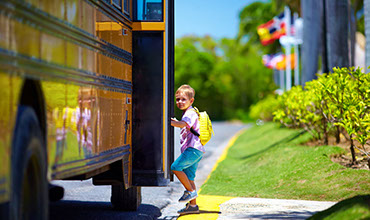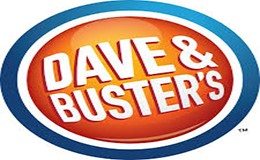When it was time for my first baby to start kindergarten, I couldn’t believe the time had gone so quickly. How could this little person be ready to spend all day away from me in the big school? Was she actually ready? By the time my twins were kindergarten-bound, I knew better what to expect, and had faith that it would all turn out all right. However, I still ran through a kinder-readiness checklist in my head to soothe my mama’s heart.
“Is my child ready for kindergarten?” is an age-old question. This year, the pandemic has likely complicated the decision process further as numerous parents chose to delay kindergarten to avoid starting their children on Zoom. Still other families experienced spotty preschool attendance due to shutdowns and quarantine and may find themselves wondering if their child’s kinder-readiness was affected.
Whatever your family’s situation, there are clear signs that your child is ready for kindergarten. Checking off the signs of readiness below for my twins helped me to recognize that my kids were definitely ready for school. I was the one who needed to get on board!
Your child is likely academically and emotionally ready for kindergarten if he or she:
Follows simple directions At home, your child listens to and follows through with simple directions such as “put your shoes away” or “wash your hands.”
Uses the bathroom and washes hands independently Kindergarteners are responsible for attending to their own toilet needs. They should be able to unbutton and pull down their clothing, use toilet paper properly, flush and wash their hands thoroughly.
Plays well with others Your child should be able to make friends with others as well as cooperate both one-on-one and in small groups.
Handles impulses and emotions Your child generally should be able to gather himself after expressing big emotions and should be able to control impulses such as hitting when mad, snatching toys or blurting out during storytime.
Sits still and pays focused attention Look for your child to be able to sit still and attend for at least one minute per year of age, i.e. 5 minutes for a 5-year-old.
Recognizes some letters and numbers Your child should be able to identify multiple lower and uppercase letters as well as numbers 1-10.
Knows basic colors and shapes Your child should be able to name all primary and secondary colors, as well as most, if not all, basic shapes.
Shows an interest in learning Look for your child to be curious about ideas and things she encounters.
Completes tasks Your child should be able to complete tasks, even if he is not interested in them. This is a necessary skill for participating in activities that may not be engaging to him but are important nonetheles.
Follows simple rules Does your child follow simple rules given by other adults at places like preschool, church or the library?
Handles separation If your child occasionally cries when separating from you, that’s normal, but if your child almost always struggles with separating, that may mean she is not ready for a kindergarten classroom.
Has the necessary physical stamina Kindergarten introduces long, full days of learning and activity. If your child requires a long daily nap or tires quickly from play, he may developmentally need more time before starting kindergarten.
Self-advocates Can your child ask for help when needed? Does she speak up when she doesn’t understand something? Look for these signs of maturity in your child.
Has adequate fine motor skills Can your child hold a pencil, trace shapes, button a shirt and write her name?
If you can check many of these boxes for your child, but not all, don’t fret! Children develop at different rates and a few missing skills don’t automatically mean a child is not ready to start school. If you are still uncertain as to whether or not your child is ready for kindergarten, discuss your concerns with your child’s preschool teacher, as he or she is well-placed to make a recommendation.
You can also help your child work on some of those lagging skills so that he can have a strong start to kindergarten. A little practice working with buttons and zippers, using the appropriate amount of toilet paper and washing hands thoroughly will go a long way towards competency at school. You can help your child build fine motor skills by playing with play dough, stringing pasta necklaces, painting and coloring. To make lunchtime successful, practice opening a lunchbox and all of those small containers in a timely manner. It is also a good idea to read to your child and ask questions about the story to help him think about what was read. This is what will happen in the classroom, and he will become familiar with the process.
If, after all of this, you’re still not confident that your child is ready, remember, you likely know best. As long as your decision to delay is based on your child and not your own fears or sense of loss, trust your instincts. Sending your child to kindergarten can certainly tug on the emotions, but using a fact-based checklist can help make the decision a little easier on the heart.
Alison Bogle is a writer living in Austin with her husband and three children. A former fourth-grade teacher, she now enjoys writing about children and education.














